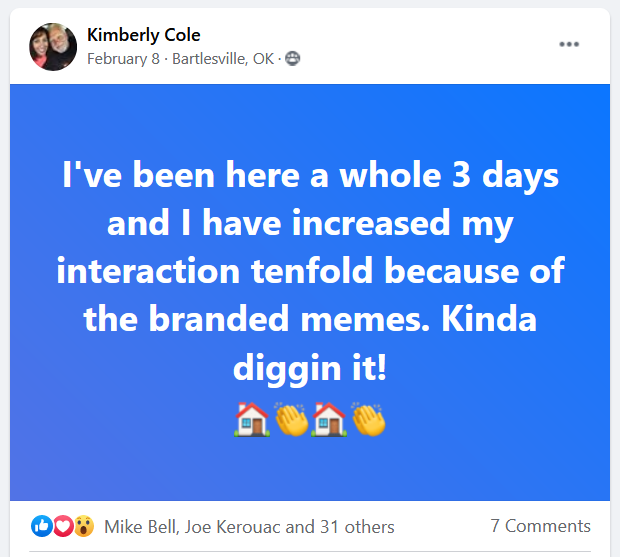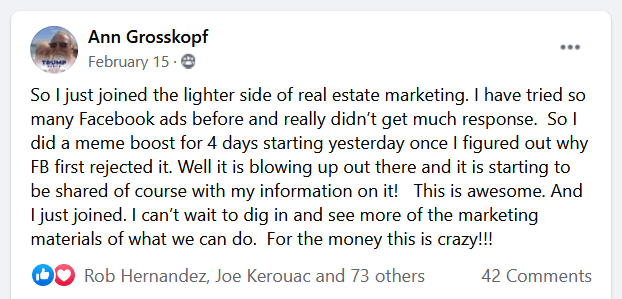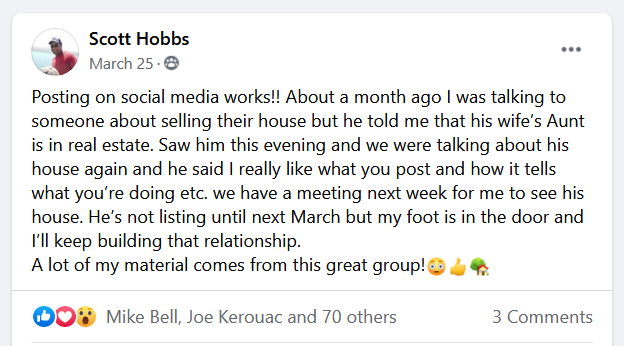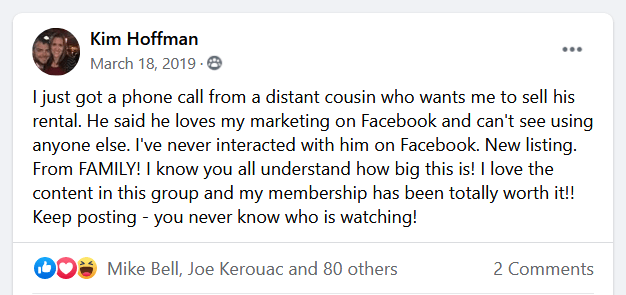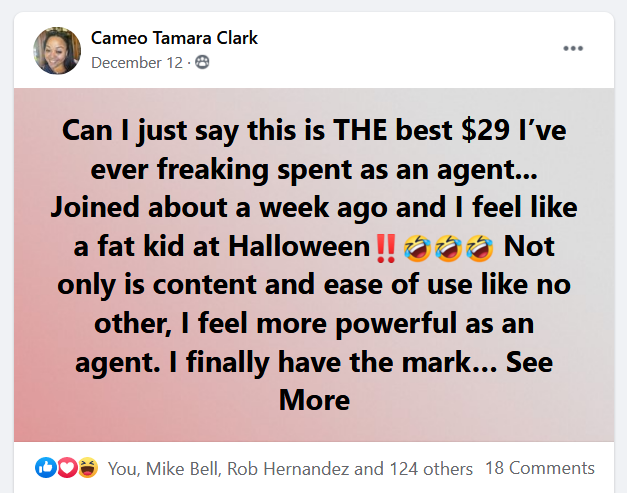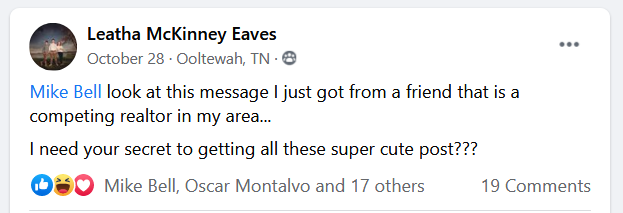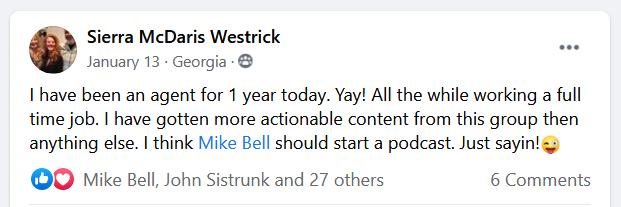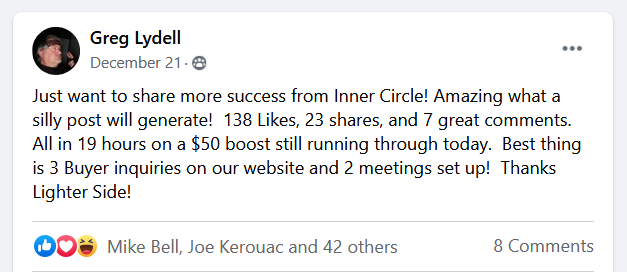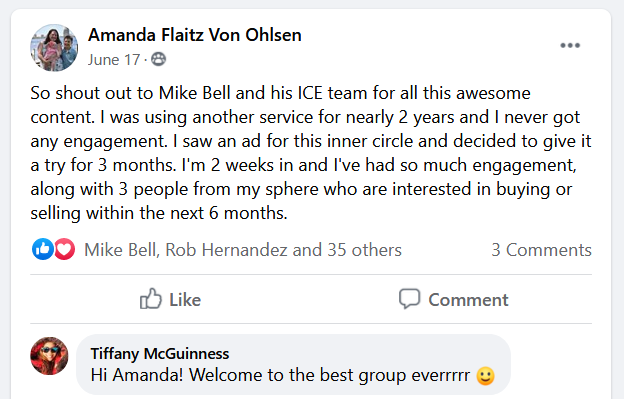
Agents: How To Not Suck At Social Branding (even if you have the personality of a lockbox)
There’s no way around it… Now, more than ever, you’ve GOT to stand out as a real estate agent. To say our industry is over-saturated



Buying a new home when you already own one is tricky in almost any market.
But when there’s limited inventory or a flood of buyers competing for the same properties, it gets even trickier. Even in a slower market, the logistics can still be stressful.
Plenty of homeowners start out thinking, I’ll just keep my eyes open, find something I love, make an offer, and it’ll all fall into place. Once I have another home lined up, I’ll sell my current place quickly—it shouldn’t be a problem.
It’s an optimistic approach, but reality often plays out differently.
It’s understandable if you don’t want to sell your current home until you’ve found the next one. But for many buyers, selling is the only way to free up the funds they need for their next purchase. And that’s where things get complicated.
You can end up feeling stuck in limbo—unsure how to make the leap without risking a stretch of being in between homes or juggling two at once.
A common assumption is that the seller of the home you want will simply wait while you sell your place, agreeing to a contingency that makes your purchase dependent on your sale.
In reality, most sellers aren’t thrilled with that idea. From their perspective, it introduces a big question mark into the deal. They’d much rather work with buyers who already have financing secured, have their home sold, or don’t need to sell at all.
That’s why real estate professionals usually advise putting your current home on the market first, getting it under contract, and then shopping for your next place. While contingent offers can work, they usually leave you at a disadvantage compared to other buyers.
Some buyers decide to take the opposite approach and try to find the perfect house, make an offer, and then scramble to sell their current place before the closing date.
It’s bold—but risky.
Even if your home is attractive and in demand, selling and closing on it in a short time frame is no small feat. Deals can fall through. Buyers can get cold feet. And if you’re under pressure to sell, you might end up accepting less favorable terms, giving up ground on price, or conceding on inspection repairs you’d normally push back on.
Bottom line: going under contract on a new home while still holding onto your old one can leave you financially and emotionally stretched thin.
Fortunately, there’s a financing tool designed for this exact situation: the bridge loan.
As this article from the National Association of Realtors recently explained, bridge loans can give homeowners a way to move forward with buying before their current home sells.
A bridge loan is a short-term financing option that allows you to tap into the equity in your current home before you sell. Essentially, it gives you temporary access to your home’s value so you can act quickly in a competitive market without having to wait for your sale to close.
Here’s how it works:
In many ways, qualifying for a bridge loan is similar to qualifying for a traditional mortgage. Lenders look at your overall financial picture: your income, credit score, debts, and, of course, how much equity you have in your current home. They need to know you can comfortably handle payments on both homes during the short overlap period.
Bridge loans aren’t open-ended. Most give you about six months to sell your current home. That window can feel like a relief compared to trying to pull everything off in a matter of weeks, but it still comes with responsibility.
Once the bridge loan is in place, you’ll want to move quickly to prep your home, list it on the market, and attract serious buyers. The more proactive you are, the smoother the transition will be.
Think of the bridge loan as buying yourself breathing room—not a license to sit back and wait.
Bridge loans aren’t a one-size-fits-all solution. They offer clear advantages—flexibility, stronger offers, and less stress about juggling two closings—but they’re not without drawbacks. Interest rates are typically higher than traditional mortgages, and you’re temporarily carrying two loans.
If you’re confident in your home’s marketability and comfortable with a short-term overlap, a bridge loan can help you navigate the buy-sell puzzle. But if your finances are tight or your home might take longer to sell, it may not be the safest choice.
The smartest first step is talking to a real estate professional you trust. An agent can help you weigh your options, assess your home’s marketability, and connect you with lenders experienced in bridge loans. With the right guidance and a solid plan, moving from one home to another doesn’t have to feel impossible.
The Takeaway:
Buying a new home while still owning your current one can feel like walking a tightrope—but with the right strategy, it doesn’t have to be overwhelming. Contingent offers or buying first without a plan often leave buyers who also have a house to sell stressed and at a disadvantage.
Bridge loans offer a way to tap into your home’s equity, move quickly in a competitive market, and give yourself breathing room to sell your current property. They aren’t the perfect fit for everyone, but paired with the guidance of a trusted real estate professional, they can make the transition between homes smoother and less risky. The key is planning ahead, knowing your financial limits, and having the right team in place to navigate the process successfully.

(Shh, our secret)
Show your sphere your an expert. We have over 2100 articles covering every real estate topic your audience will love.
Position yourself as a real estate authority!
Real estate + topical events — the perfect match!
Become the bearer of good vibes!
Because hey, everyone loves to laugh!



Get our weekly email that makes communicating with your sphere on social actually enjoyable. Stay informed and entertained, for free.

There’s no way around it… Now, more than ever, you’ve GOT to stand out as a real estate agent. To say our industry is over-saturated
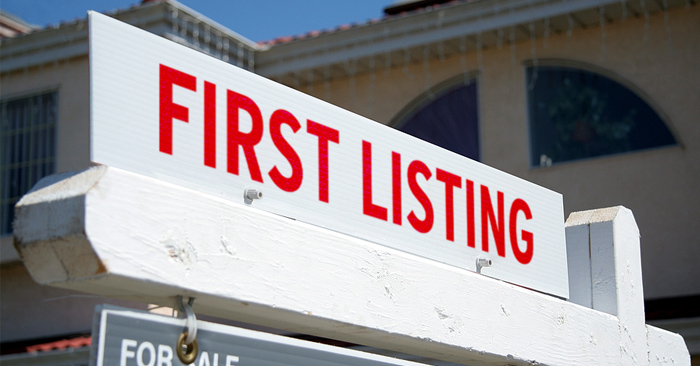
Listing your first house can take some time when you get into real estate. And we’re not talkin’ just weeks or months—it can take years!

Want a strong dose of reality? Are you sure? Because this is going to sting: In my opinion, the vast majority of agent Facebook pages

Hello dearest real estate friend. Glad you could make it today. What I want to do here is simple – convince you to be yourself.

1. Spamming your listings with no commentary Posting a link or sharing something on Facebook without your opinion is boring. Your friends want to know
Depending on your situation, it may not take the full 30 minutes.

This reset password link has expired. Check the latest email sent to you.
